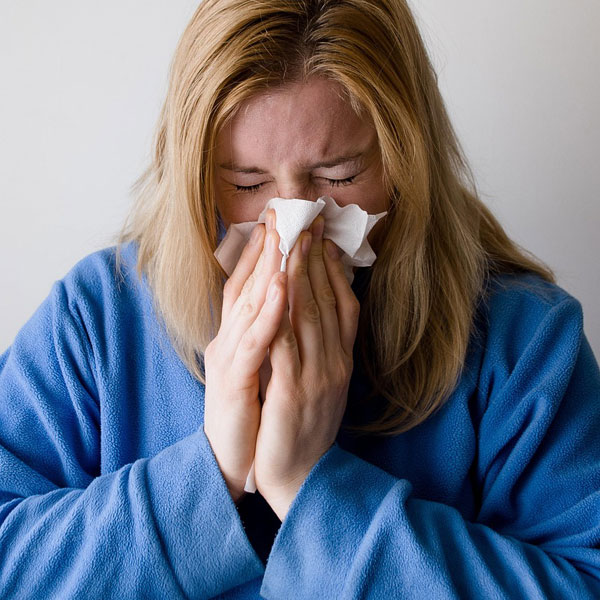Allergies are becoming an increasingly serious challenge

[Allergies. Photo Credit to Pixabay]
The 2025 Allergy Capitals report has revealed concerning trends: pollen allergy season is now lasting longer and affecting more patients, impacting over 100 million Americans.
Wichita, Kansas tops the list as the worst place for allergies, characterized by high pollen counts and few medical specialists according to the report.
Climate change is to blame for the early arrival of allergy seasons and their extended duration, with warm temperatures projected in most cities across the south and east regions of the United States.
Research indicates that pollen seasons are becoming longer, and pollen counts are worse due to global warming, which in turn will only hasten the spread of allergic diseases globally.
There’s also a phenomenon called "thunderstorm asthma," where storms break up pollen and cause serious allergic reactions more often.
Studies revealed that the pollen season could start as early as 40 days earlier and last twice as long this century, with a marked increase in the amount of pollen.
Ragweed pollen is expected to become especially problematic, leading to more severe allergy symptoms for many people.
Increased allergy issues can lead to absenteeism in schools, missed work days, and visits to medical emergency rooms.
Allergies can be caused by many things, and while they are often hard to cure, there are effective ways to manage symptoms.
For example, regular cleaning and air filtration systems can be used to reduce exposure to dust mites or animal dander at home.
Clean air absolutely helps to remove allergens from indoor environments and improves overall air quality, making it particularly beneficial for people with allergies.
Experts recommend washing bed clothes regularly as a primary preventive measure.
These include bed sheets and pillow cases; however, people shouldhave to wash them in hot water once every week.
Doing so reduces the accumulation of allergens, which in turn makes for a healthier place to sleep.
As another precaution, windows should be kept closed to avoid outside allergen exposure during high pollen days.
Specifically during spring when the air is full of pollen, people should keep an eye on weather reports to avoid walking outside on high-pollution days or consider wearing a face mask.
Starting on these preventive interventions will make it easier for people to manage allergy symptoms and, in turn, improve their daily activities comfortably.
Over-the-counter antihistamines, decongestants, and nasal sprays are effective options for relieving allergy symptoms.
One example is cetirizine, a common antihistamine used by people with allergic rhinitis.
It helps reduce symptoms like sneezing and a runny nose.
This medicine has few side effects and is usually taken once a day, which is why many patients prefer it.
Decongestants like phenylephrine and oxymetazoline help relieve stuffy noses by narrowing the blood vessels in the nasal passages.
These medications work quickly, but if used for a long time, they can cause rebound congestion, so it's important to be careful with them.
Nasal sprays often contain steroids, and fluticasone is a well-known example.
These sprays reduce inflammation and help relieve allergic reactions.
When used regularly, they can help control allergy symptoms over the long term.
As an alternative, allergy shots (immunotherapy) provide a long-term solution for people with chronic allergies.
This treatment helps increase tolerance to specific allergens and usually lasts about 3 to 5 years.
Studies show that patients who receive immunotherapy often see major improvements in their allergy symptoms and rely less on medications.
Ultimately, as climate change continues to reshape the landscape of allergy seasons, it is crucial for individuals and communities to stay informed and proactive.
By combining environmental awareness with personal and medical management strategies, it is possible to help mitigate the impact of worsening allergies and protect public health for years to come.

- Sean Jung / Grade 10 Session 1
- Eric Hamber Secondary School

![THE HERALD STUDENT REPORTERS [US]](/assets/images/logo_student_us.png)
![THE HERALD STUDENT REPORTERS [Canada]](/assets/images/logo_student_ca.png)
